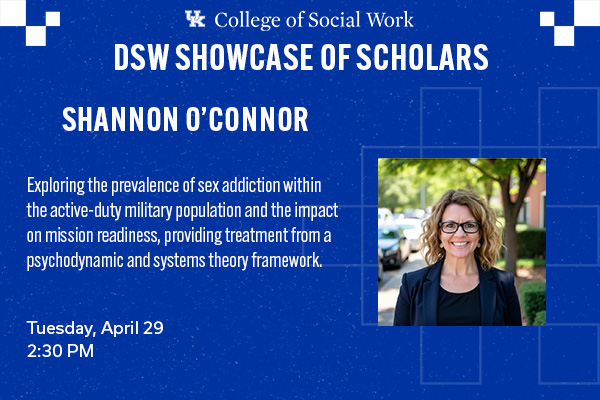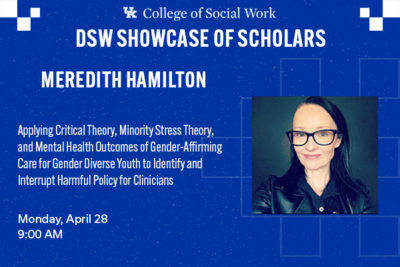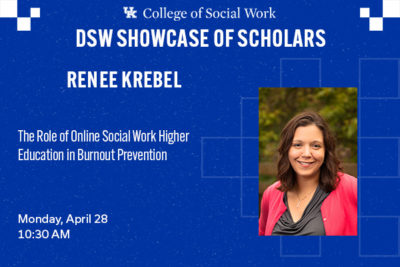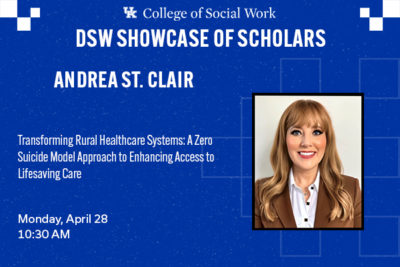DSW Candidate – Shannon O’Connor, 2:30 PM – 3:45 PM
$0.00
Virtual Showcase of DSW Scholars 2025 Event!
Exploring the prevalence of sex addiction within the active-duty military population and the impact on mission readiness, providing treatment from a psychodynamic and systems theory framework
DSW Candidate – Shannon O’Connor, MSW, LCSW, LCAS, CCS, CSAT
Tuesday, April 29, 2025
2:30 PM – 3:45 PM Eastern Time Zone
Credit Hours: 1.0 (ACE)
Description
Exploring the prevalence of sex addiction within the active-duty military population and the impact on mission readiness, providing treatment from a psychodynamic and systems theory framework
The phenomenon of sex addiction has garnered significant attention from mental health and addiction professionals over the past decade. Numerous social workers are dedicated to aiding individuals struggling with this addiction in their recovery journeys and efforts to regain autonomy. However, within military contexts and among active-duty personnel, this area of behavioral health remains relatively underexplored.
The primary objective of this presentation is to explain the scope and ramifications of sex addiction among active-duty service members, emphasizing the necessity of treatment through established clinical frameworks and examining available support systems. Furthermore, the presentation will explore innovative digital methodologies for service delivery, where considerations of accessibility and privacy are paramount for the military community. This population must be afforded equitable access to treatment on federal installations, where services are provided at no cost and are readily accessible.
Given the pervasive issues associated with pornography and other compulsive sexual behaviors, it is essential for social workers to lead initiatives within military communities, ensuring that individuals have access to treatment and a secure environment to address their needs. The research presented aims to assess and illuminate this pressing issue, offering valuable insights for military personnel, social workers, researchers, educators, and other addiction specialists. By tackling the unique challenges posed by problematic sexual behavior, we can formulate targeted, evidence-based strategies and interventions that foster healing and resilience.
Learning Objectives:
Upon completion of this conference, participants will be able to:
- Define and understand what sex addiction is.
- Understand how sex addiction affects the mental health, readiness, and overall performance of active duty military personnel.
- Understand the benefit of using systems theory and psychodynamic theory in treating sex addiction within the military population in identifying effective interventions and resources to support them.
Delivery Method: Live Interactive Training via Zoom Video Conferencing
Credit Hours: 1.0 (ACE)
Target Audience: This conference is intended for social workers and students.
Accreditation: University of Kentucky College of Social Work, Provider # 1377, is approved as an ACE provider to offer social work continuing education by the Association of Social Work Boards (ASWB) Approved Continuing Education (ACE) program. Regulatory boards are the final authority on courses accepted for continuing education credit. ACE provider approval period: 9/29/22-9/29/25. Social workers participating in this conference will receive up to 15 general continuing education credits.
Claiming CE Credit: Instructions for claiming CE credit will be disseminated at the beginning of each session.
Questions: If you have any questions regarding CE credit or to report a grievance, please contact Christina Krantz at Christina.Krantz@uky.edu. For technical assistance, please contact lmshelp@uky.edu.
Disclaimer: The views and opinions expressed in these presentations are those of the individual presenters and do not necessarily reflect the official policies or positions of the University of Kentucky or the College of Social Work. The inclusion of any topics, perspectives, or discussions is intended for academic engagement and does not constitute endorsement by the institution.



